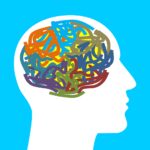Mindfulness
Depression is a common mood disorder that many of us are all too familiar with. Some have experienced it themselves, others have watched family members or close friends suffer from it, and others have suspected that students who they work with are demonstrating depressive symptoms. In this course, you will learn about depression, where it comes from, what it looks like, how to identify it, ways to help and so much more. This course will enlighten and educate you and hopefully make you a more sensitive educator. The information learned in this course will help anyone who interacts with children and adolescents. The course is relevant to all who work in schools and with children of all ages in all settings.
This course was developed for school administrators, regular and special education teachers (grades K-12 and ages 5 to 21),special area teachers, school psychologists, school counselors, guidance counselors, social workers, speech and language therapists and pathologists and occupational and physical therapists.
ON-LINE (3 credits/45 hours) In-Service Credit only | $250.00$280.00 Max: Min: 1 Step: 1 Add to cart | |
In recent years, there is more and more research being uncovered about Happiness. There are ways that we, as educators can become happier people, regardless of life circumstances. There are also strategies that school professionals can use in their classrooms to increase the happiness of their students. In this course, we will learn about some of those techniques – both for ourselves and our students. These important concepts will prove not only relevant for your work with your students but also your general mindset and functioning as an educator. This course is relevant to all who work in schools and with children of all ages in all settings.
This course was developed for school administrators, regular and special education teachers (grades K-12 and ages 5 to 21), special area teachers, school, school counselors, guidance counselors, social workers, speech and language therapists and pathologists and occupational and physical therapists.
ON-LINE (3 credits/45 hours) In-Service Credit only | $250.00$280.00 Max: Min: 1 Step: 1 Add to cart | |
Instructor: Lee Markowitz email: MarkowitzLIIPS@gmail.com
ON-LINE (3 credits/45 hours) In-Service Credit only
As we proceed through a new age of teaching, teachers find themselves facing new challenges and expectations…We must have heightened sensitivity to students’ social and emotional well-being, acknowledgement of gender neutrality and fluidity, recognition of anxiety and depression, as well as remaining mindful of Covid-19 and the impact it has had on so many. Yes, we must teach the academics and yes, school must go on; however, we must always prioritize our students’ safety and comfort. Above all else, students need to feel comfortable in our classrooms. They need to feel safe, they need to feel accepted and welcome. Teachers enrolled in this course will explore proven tactics and strategies aimed at maintaining a positive, encouraging classroom morale so that our students have a fair chance at performing their best and getting the most out of their educational experience.
Applicable to teachers of all subjects/grade levels. | $250.00$280.00 Max: Min: 1 Step: 1 Add to cart | |
Course Description: Acceptance and Commitment Therapy is a research based intervention that has been proven to improve the mental health of individuals. Mental health is increasingly becoming a crucial component of school systems, as children who are suffering emotionally are not available to learn. Additionally, teachers who are overly stressed, anxious and unhappy will not be effective educators. It is therefore extremely important for educators, therapists, administrators, and all school employees to become better advocates of mental health and to learn some basic techniques. In this course, we will learn about some of those techniques. These important concepts will prove not only relevant for your work with your students but also your general mindset and functioning as an educator. This course is relevant to all who work in schools and with children of all ages in all settings.
This course was developed for school administrators, regular and special education teachers (grades K-12 and ages 5 to 21), special area teachers, school psychologists, school counselors, guidance counselors, social workers, speech and language therapists and occupational and physical therapists.
Course Objectives
Participants will learn about and research various concepts in Acceptance and Commitment therapy and how they can be applied to the school setting.
ON-LINE (3 credits/45 hours) In-Service Credit only | $250.00$280.00 Max: Min: 1 Step: 1 Add to cart | |
Course Description: Cognitive Behavioral Therapy is a research based intervention that has been proven to improve the mental health of children, adolescents and adults. Mental health is increasingly becoming a crucial component of school systems, as children who are suffering emotionally are not available to learn. Additionally, teachers who are overly stressed, anxious and unhappy will not be effective educators. It is therefore extremely important for educators, therapists, administrators, and all school employees to become better advocates of mental health and to learn some basic techniques. In this course, we will learn about some of those techniques. These important concepts will prove not only relevant for your work with your students but also your general mindset and functioning as an educator. This course is relevant to all who work in schools and with children of all ages in all settings.
This course was developed for school administrators, regular and special education teachers (grades K-12 and ages 5 to 21),special area teachers, school psychologists, school counselors, guidance counselors, social workers, speech and language therapists and pathologists and occupational and physical therapists.
Course Objectives
Participants will learn about and research various concepts in cognitive behavioral therapy and how they can be applied to the school setting.
ON-LINE (3 credits/45 hours) In-Service Credit only | $250.00$280.00 Max: Min: 1 Step: 1 Add to cart | |
Fall 2025: September- 8, 9, 10, 11, 15, 16, 17, 22, 23, 24.
Instructor: Kim Kittredge, kkittredgeliips@gmail.com
After we renew and revive ourselves over our summer, here comes September again. Hopefully, we enter our new school year with energy and excitement. Did we refresh ourselves enough to start the year off the right way? This course will work on providing effective tips for educators to begin your year effectively with your students. We will discuss how to set the correct tone and show your students your creative personality for day one. This course is a must for educators grades K-12. | $250.00$280.00 Max: Min: 1 Step: 1 Add to cart | |
The population in our classrooms is always evolving. Ten percent of the population is gay, bisexual, or transgender. These students come to school with needs like any other student. They have a right to feel safe and accepted in order to learn. When a child feels that they are not accepted by their peers they often seek the advice of someone they can talk to in a confidential setting, and teachers need to be prepared to help a student in this situation. This course will help any educator to be a reliable source for their students who feel marginalized due to their sexual orientation or gender identity/expression. This course is suitable for K-12 educators, related service providers, and special area teachers.
ON-LINE (3 credits/45 hours) in-service only | $250.00$280.00 Max: Min: 1 Step: 1 Add to cart | |
Creating a framework of safety is critical in students’ lives during a pandemic. Abrupt change can trigger stress and fear in students that can leave scars for decades to come. A student in stress is unable to learn effectively. As schools across the country remain closed, students with trauma, difficult home situations, and anxiety need support now more than ever. Help students feel safe through the three C’s, communication, consistence, and control.
ON-LINE (3 Credits / 45 hours) in-service credit only
| $250.00$280.00 Max: Min: 1 Step: 1 Add to cart | |
Most students feel stressed at times in class, but some might be more vulnerable to stress than others. When stress builds up to severe levels for a child, they may be at risk to develop toxic stress—which can have lasting effects on their social-emotional, behavioral, and physical health. If you can recognize signs of stress in your students, you can provide them with support to help them manage it before it overwhelms them. It will cover an array of topics such as recognizing symptoms of stress, possible reasons for school related stress, stress management techniques, meditation, truancy/suspensions, trauma, and also distinguishing between good vs. bad stress. This class is created for any educator or service provider. Suggested for all Educators K-12.
ON-LINE (3 Credits / 45 hours) In-service Credit only
| $250.00$280.00 Max: Min: 1 Step: 1 Add to cart | |
This online course will allow professionals working with children the opportunity to create resilient environments that meets the social, emotional, ethical, and academic needs of students. You will be provided with necessary tools that will enable them to foster compassion, a workable set of values, the skills of cooperation, appropriate decision-making, goal setting, and high academic expectations in their school setting. You will explore some research-based skills and competencies that have a positive impact on the organizational structure of school and the delivery of instruction. Student performance build bridges by acknowledging past accomplishments, validating what is presently working well, and designing future goals to bring the existing classrooms. Mindfulness is about learning to train your attention to the present moment without dwelling on what has happened in the past or worrying about the future. Mindfulness provides many physical and psychological benefits which will be discussed throughout this course.
ON-LINE (3 Credits / 45 hours) in-service credit only
| $250.00$280.00 Max: Min: 1 Step: 1 Add to cart | |
In this course teachers will learn how to create a POSITIVE BEHAVIOR INTERVENTION PLAN for specific students as well as the classroom as a whole, ensuring success for their students.
There are many ways to define or explain the concept of POSITIVE BEHAVIOR INTERVENTION. Some of the most common ways include:
The application of behavior analysis and systems change perspectives within the context of person-centered values to the intensely social problems created by behaviors such as self-injury, aggression, property destruction, pica, defiance, and disruption A dynamic, problem-solving process involving goal identification, information gathering, hypothesis development, support plan design, implementation, and monitoring An approach that blends values about the rights of people with disabilities with a practical science about how learning and behavior change occur
A comprehensive Positive Behavior Support Plan includes a range of intervention strategies that are designed to prevent the problem behavior while teaching socially appropriate alternative behaviors. The goal is an enhanced quality of life for individuals involved and their support providers in a variety of settings.
In this course teachers will learn how to create a POSITIVE BEHAVIOR INTERVENTION PLAN for specific students as well as the classroom as a whole, ensuring success for their students.
ON-LINE (3 Credits / 45 hours) in-service credit only
| $250.00$280.00 Max: Min: 1 Step: 1 Add to cart | |
This course will provide participants with an overview of various anxiety disorders with a focus on: definitions, prevalence, diagnosis, and treatment. Emphasis will be placed on recognition of the behaviors, signs and symptoms that may be observed in the classroom and what accommodations and strategies teachers may use to support their students. This course is appropriate for all educators K-12, ELA, Social Studies, Math, Science, ESL, Special Education, Art and Music, Physical Education, School Psychologists, Guidance Counselors ,Social Workers Speech/Language teachers and therapists, OT & PT’s. Common Core Learning Standards are addressed. This course is important for ALL educators!
ON-LINE (3 Credits / 45 hours) in-service credit only | $250.00$280.00 Max: Min: 1 Step: 1 Add to cart | |
The mental health of students in schools is an often overlooked, yet extremely relevant issue for today’s educator. Educators are often the first to notice mental health problems and are in a unique position to make a difference when it comes to promoting and addressing student mental health concerns in and out of the classroom. Mental disorders: affect a student’s emotional well-being, affect a student’s ability to learn and may be a factor in why some students drop out of school. This course will cover: common mental health disorders, the role of educators to identify warning signs, communicating with parents and supporting students in the classroom.
This course is relevant to all who work in schools with children ages 5-21 in both regular and special education settings. This course has been designed for school administrators, regular and special education teachers (grades K-12 and ages 5 to 21),special area teachers (gym, art, music, technology) school psychologists, school counselors, guidance counselors, social workers, speech and language therapists or speech pathologists and occupational or physical therapists.
ON-LINE (3 Credits / 45 hours) in-service credit only | $250.00$280.00 Max: Min: 1 Step: 1 Add to cart | |
PDLI9030
(45 HOURS/3 GRADUATE CREDITS)
ON-LINE
Instructor: Randi Miller rmillerliips@gmail.com
Course Description:
The mental health of students in schools is an often overlooked, yet extremely relevant issue for today’s educator. Educators are often the first to notice mental health problems and are in a unique position to make a difference when it comes to promoting and addressing student mental health concerns in and out of the classroom. Mental disorders: affect a student’s emotional well-being, affect a student’s ability to learn and may be a factor in why some students refuse to attend school. This course will cover: common mental health disorders (10 in total), the signs and symptoms of each disorder, the behavioral manifestation of the disorders in school, and the role of educators (regardless of their position) to identify warning signs, communicate with parents and support students in/out of the classroom.
This course is relevant to all who work in schools with children ages 5-21 in both regular and special education settings. This course has been designed for all school administrators, regular and special education teachers (grades K-12 and ages 5 to 21), special area teachers (gym, art, music, technology) school psychologists, school counselors, guidance counselors, social workers, speech and language therapists or speech pathologists and occupational or physical therapists. | $600.00 Max: Min: 1 Step: 1 Add to cart | |
PDLI9000
(45 HOURS/3 GRADUATE CREDITS)
ON-LINE
Instructor: Randi Miller rmillerliips@gmail.com Graduate Level Credits
Course Description:
Each year, approximately 2–5% of children refuse to come to school. School refusal can be observed in kindergarten students who demonstrate relatively mild separation anxiety to more severe cases where a student misses’ weeks or months of school. As a result of the social and educational consequences associated with missing school, the issue needs to examine and addressed promptly. This course will look at the factors associated with and contributing to the occurrence of school refusal. Participants will examine the short- and long-term effects of absenteeism, the signs and symptoms commonly associated with school refusal and research solutions to the problem.
This course is relevant to all who work in schools and with children ages 5-21 in both regular and special education settings. This course has been designed for school administrators, regular and special education teachers (grades K-12 and ages 5 to 21),special area teachers (gym, art, music) school psychologists, school counselors, guidance counselors, social workers, speech and language therapists and pathologists and occupational and physical therapists. | $600.00 Max: Min: 1 Step: 1 Add to cart | |
PDLI9010
(45 HOURS/3 GRADUATE CREDITS)
ON-LINE
Instructor: Randi Miller rmillerliips@gmail.com
Course Description: Traumatic experiences come in many forms ranging from one-time events (like the current pandemic) to experiences that are prolonged and recurring. To date, approximately 50% of the nation’s children and adolescents have experienced at least one or more types of serious childhood trauma. The effects of these traumatic experiences impact how students focus, attend, learn, form relationships and behave in the classroom. Trauma informed interventions focus on building relationships, routines, choice-making and self-regulation skills. This course has been developed to provide all educators with content knowledge on the types and biology of trauma, ACES, and best practices in trauma-informed behavior and classroom management strategies. The course will provide participants with the knowledge and tools they need to create a safe, supportive learning environment for all students. A timely course given the current public health crisis and school shut down. A good opportunity to be prepared to meet the needs of staff and students when school re-opens. Applicable all Educators and Staff K - 12. | $600.00 Max: Min: 1 Step: 1 Add to cart | |
(3 Credits / 45 hours) in-service credit only ON-LINE
Instructor: Randi B. Miller Rmillerliips@gmail.com Course Description:
Learning, thinking, listening, processing information, communicating and relationships with others are best when one is in a calm and regulated state.
Regulation in others, starts with our own skills of self-regulation. Then through the process of co-regulation, calm is shared and modeled which in turn develops and fosters the ability for students to self-regulate.
This course will provide participants a framework to understand calm and regulation through the brain/body/behavior connection. Participants will develop a working understanding of the terms: regulation, dysregulation, and co-regulation. The course will also provide resources and materials to help participants implement strategies and teaching procedures to create calm. This course is appropriate for all educators K-12, ELA, Social Studies, Math, Science, ESL, Special Education, Art and Music, Physical Education, School Psychologists, Guidance Counselors ,Social Workers Speech/Language teachers and therapists, OT & PT’s. | $250.00$280.00 Max: Min: 1 Step: 1 Add to cart | |
formerly titled: Strategies to Promote Regulation and Calm in yourself, staff and students throughout the day 3 credits/45 hours … In service only Course Description: Learning, thinking, listening, processing information, communicating and relationships with others are best when one is in a calm and regulated state. Regulation in others, starts with our own skills of self-regulation. Then through the process of co-regulation, calm is shared and modeled which in turn develops and fosters the ability for students to self-regulate. Appropriate for all Educators and Staff K-12. | $250.00$280.00 Max: Min: 1 Step: 1 Add to cart | |
(3 credits/45 hours)
Instructor: Randi Miller rmillerliips@gmail.com
Selective Mutism is an anxiety disorder which significantly affects social/pragmatic language skills, social interactions, relationships as well as school performance. This course will focus on the development of SM and co-existing conditions (such as social anxiety). It will provide a review of evidence based practices for those working with students in a school setting students with SM (or those who may display) characteristics of Selective Mutism.
Course objectives;
After completing the coursework, participants will:
Have knowledge of the diagnostic criteria and characteristics of SM and related disorders
Have a foundation of information to support a student with SM in and out of the classroom.
Be able to work with peers to support their classmate with SM
Create/share resources for parents and colleagues
This course is relevant to all who work in schools with children ages 5-21 in both regular and special education settings. This course has been designed for all school administrators, regular and special education teachers (grades K-12 and ages 5 to 21), special area teachers (gym, art, music, technology) school psychologists, school counselors, guidance counselors, social workers, speech and language therapists or speech pathologists and occupational or physical therapists. | $250.00$280.00 Max: Min: 1 Step: 1 Add to cart | |
Instructor: Randi Miller
Course Description:
School-wide and Classroom Practices is an integral component of Social-Emotional Learning (SEL) programs. A part of SEL is the process of helping educators build their expertise and skills to lead their schools social and emotional learning initiatives regardless of their role in the building/district. One of the many components of SEL is cultivating adults' own social and emotional competencies.
When educators embody the same practices that they hope to teach their students, the outcomes for learners are maximized. Developing school-wide engagement activities for SEL provides opportunities for staff and students to engage in team building and learning activities that focus on this common goal. The development and implementation of school-wide activities creates teachable moments while reinforcing the core SEL components.
This course is relevant to all who work in schools with children ages 5-21 in both regular and special education settings. This course has been designed for all school administrators, regular and special education teachers (grades K-12 and ages 5 to 21),special area teachers (gym, art, music, technology) school psychologists, school counselors, guidance counselors, social workers, speech and language therapists or speech pathologists and occupational or physical therapists | $250.00$280.00 Max: Min: 1 Step: 1 Add to cart | |
Traumatic experiences come in many forms ranging from one-time events (like the current pandemic) to experiences that are prolonged and recurring. To date, approximately 50% of the nation’s children and adolescents have experienced at least one or more types of serious childhood trauma. The effects of these traumatic experiences impact how students focus, attend, learn, form relationships and behave in the classroom. Trauma informed interventions focus on building relationships, routines, choice-making and self-regulation skills. This course has been developed to provide all educators with content knowledge on the types and biology of trauma, ACES, and best practices in trauma-informed behavior and classroom management strategies. The course will provide participants with the knowledge and tools they need to create a safe, supportive learning environment for all students. A timely course given the current public health crisis and school shut down. A good opportunity to be prepared to meet the needs of staff and students when school re-opens.
Course Objectives:
Participants will:
1. Develop an understanding of what trauma is and the effect it has on brain development
2. Form an awareness of the role trauma can play in classroom performance and behavior
3. Become trauma aware and develop a trauma lens in which they can look at behavior in a different way
4. Examine traditional behavior and classroom management strategies and adapt them to be trauma informed and trauma focused
5. Create an action plan to address the needs of students impacted by the effects of trauma
This course is relevant to all who work in schools with children ages 5-21 in both regular and special education settings. This course has been designed for all school administrators, regular and special education teachers (grades K-12 and ages 5 to 21),special area teachers (gym, art, music, technology) school psychologists, school counselors, guidance counselors, social workers, speech and language therapists or speech pathologists and occupational or physical therapists.
ON-LINE (3 Credits / 45 hours) in-service credit only | $250.00$280.00 Max: Min: 1 Step: 1 Add to cart | |
Approximately 10 percent of the school population (or 9-13 million children) struggle with and demonstrate behaviors associated with mental health problems, ASD, developmental and learning disabilities. Additionally, on the rise, are students who struggle day to day from the effects of trauma or bullying. In the classroom, children with behavioral challenges often fail in school, waste time in detention or suspension, fall behind academically or never master the skills they need to make adequate progress. All the while, educators and all school-based professionals are under pressure to show progress for every student every year.
This course is relevant to all who work in schools with children ages 5-21 in both regular and special education settings. This course has been designed for all school administrators, regular and special education teachers (grades K-12 and ages 5 to 21),special area teachers (gym, art, music, technology) school psychologists, school counselors, guidance counselors, social workers, speech and language therapists or speech pathologists and occupational or physical therapists.
Course of objectives:
1. Participants will learn the basics of behavior
2. Participants will gain an understanding of the functions of behavior and how to use this methodology to understand behavior
3. Participants will synthesize their learning in order to help them manage the misbehavior of even the most challenging of students
4. Participants will apply behavior principles in order to create systems to motivate and get more out of their students
ON-LINE (3 Credits / 45 hours) in-service credit only | $250.00$280.00 Max: Min: 1 Step: 1 Add to cart | |
PDLI9020
(45 HOURS/3 GRADUATE CREDITS)
ON-LINE
Instructor: Randi Miller rmillerliips@gmail.com
Course Description:
Approximately 10 percent of the school population (or 9-13 million children) struggle with and demonstrate behaviors associated with mental health problems, ASD, developmental and learning disabilities. Additionally, on the rise, are students who struggle day to day from the effects of trauma or bullying. In the classroom, children with behavioral challenges and acting out behavior, are disruptive in the classroom, fall behind academically or never master the skills they need to make adequate progress.
This course has been developed to provide educators in and out of the classroom with content knowledge on principles of behavior, the functions of behavior and will provide the participants with a set of skills they can use to identify what a student is getting from his/her behavior and how to best manage and prevent ongoing incidents in/out of the classroom. Applicable all Educators and staff K-12. | $600.00 Max: Min: 1 Step: 1 Add to cart | |
ON-LINE (3 credits/45 hours)
In-Service Credit only
Instructor: Malka Ismach, Ph.D. Email: Mismachliips@gmail.com
Course Description: In this course, we will learn the history, components, and theories of the science of psychology, a science like no other. We will study various theories and researchers as well as constructs and how each contributes to the field in its own way. We will study, analyze, and discuss human behavior, intelligence, conditions, motivations and more. We will learn how to apply all the components of psychology into educational settings of all kinds.
This course was developed for school administrators, regular and special education teachers (grades K-12 and ages 5 to 21), special area teachers, school psychologists, school counselors, guidance counselors, social workers, speech and language therapists and pathologists and occupational and physical therapists. | $250.00$280.00 Max: Min: 1 Step: 1 Add to cart | |
“Social and emotional competence is the ability to understand, manage, and express the social and emotional aspects of one’s life in ways that enable the successful management of life tasks- such as learning, forming relationships, solving everyday problems, and adapting to the complex demands of growth and development” -Maurice Elias
This course will provide an overview of Social Emotional Learning in schools and explain the five core social emotional competencies. Participants will research SEL curriculum and standards from NYSED as well as content area integration crosswalks. Educators will learn the benefits of teaching SEL by researching successful implementation from schools across the nation, spanning all grade levels. In addition, participants will research growth mindset as well as mindfulness and the correlation with academic achievement.
ONLINE (3 credits/45 hours) in-service credit only | $250.00$280.00 Max: Min: 1 Step: 1 Add to cart | |
“Rather than focusing solely on students’ academic achievement, the whole child approach to education focuses on students’ well-being beyond the classroom. It’s centered on the idea that preparing students for the future goes beyond preparation in academia.” –Edith Esperaza
This course will examine the philosophy of whole child education, considering the health, safety, & social-emotional wellness of a student while they are supported & challenged within schools. Educators will learn the main components of whole child education and research effective practices in real-world examples from schools across the nation. In addition, participants will have the opportunity to research successful administrators as well as explore whole child action plans in order to turn-key information within his/her school/district.
ON-LINE (3 credits/45 hours) in-service credit only | $250.00$280.00 Max: Min: 1 Step: 1 Add to cart | |
At times, our daily lives can be so overwhelming. Be Mindful: Giving Back to Yourself is designed to help teachers and students become more mindful in order to help relieve stress. It is important to build a positive classroom community and to increase mindfulness. In this course, teachers will learn how to use various techniques to help de-stress themselves and students.
ON-LINE (3 credits/45 hours) in-service credit only | $250.00$280.00 Max: Min: 1 Step: 1 Add to cart | |
Educators today are under a tremendous amount of pressure to cover ground, meet deadlines and achieve goals. While academics are a crucial part of our role as educators, there is so much more that students need to learn in order to succeed. There are life skills that are equally as, if not more important than the academic material that students are required to know. Many of these skills have been researched by those in the field of positive psychology. In this course, we will learn about some of those life skills, the research behind them and how we can integrate the teaching of these skills into our classrooms, treatment sessions, and dialogues. We will be learning about the growth mindset, how to be more optimistic, the importance of gratitude, what it means to be a leader and other important concepts. This course is relevant to all who work in schools and with children of all ages in all settings.
ON-LINE (3 credits/45 hours) in-service credit only | $250.00$280.00 Max: Min: 1 Step: 1 Add to cart | |
This course explores the creation of a classroom community that meets the needs of all students, including learners with disabilities and learners with diverse backgrounds. Suitable all educators K-12.
A primary objective of this course is to help teachers understand how the Building a Classroom Community approach boosts children’s social and academic skills while reducing behavior problems.
Particpants completing this course will:
• Receive materials, readings and research relevant to building a classroom community
• Learn how to develop strategies that will enable all students to participate in group activities and explore team building activities
• Morning Meeting Approach
• Investigate the Responsive Classroom approach to discipline
• Gather practical tips to try in your classroom right away
ON-LINE (3 credits/45 hours) in-service credit only | $250.00$280.00 Max: Min: 1 Step: 1 Add to cart | |
*New Course Spring 2025 Instructor: Kim Kittredge kkittredgeliips@gmail.com 3 Credits In Service Course (45 Hours) Course Description:This course is designed to discuss empathy and how we can build it together. Empathy will be defined and explored. Teachers will be given a multitude of tools to build empathy in the classroom and in the culture within the school. Educators will work towards sympathizing and building stronger relationships through empathy and empathetic strategies. Strategies such as “imagine self” and “imagine others” will be discussed. Educators will work on skills to deeply understand their students’ personal and social situations, and feel care and concern for them. Positive and negative emotions will be explored as well as proper communication, understanding and how to demonstrate empathy in the classroom and in your school. This course is a must for educators K-12. | $250.00$280.00 Max: Min: 1 Step: 1 Add to cart |
















